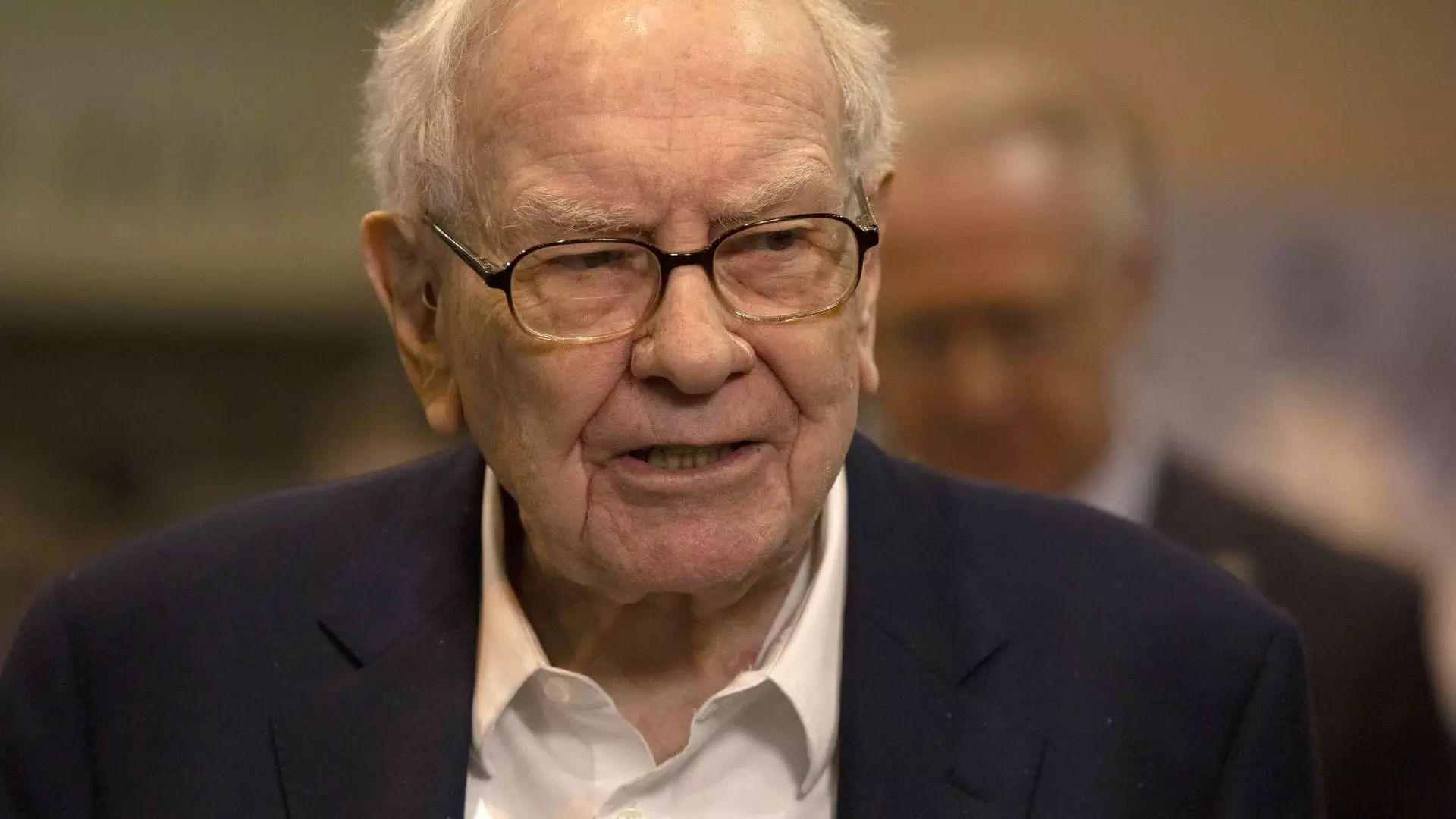Berkshire Hathaway, under the stewardship of Warren Buffett, is often lauded for its investment strategies and keen market insights. In the third quarter of the fiscal year, the conglomerate’s cash reserves burgeoned to a staggering $325.2 billion, reflecting a strategy steeped in caution and opportunism. The significant cash accumulation, up from $276.9 billion in the previous quarter, has sparked discussions around Buffett’s recent stock-selling patterns, designed not merely for liquidity, but as part of a broader strategic outlook on market conditions and future investments.
The substantial increase in Berkshire’s cash reserves is a testament to Buffett’s nuanced approach toward market volatility. By divesting a significant portion of his equity stakes, particularly in high-profile stocks like Apple and Bank of America, Buffett is not just securing immediate liquidity but also repositioning for future investments amid an uncertain economic landscape. In fact, the sale of approximately 25% of Berkshire’s Apple holdings marks a continuation of a trend that spans four consecutive quarters of reduction in this key investment. Additionally, the conglomerate has realized more than $10 billion from divesting its long-time Bank of America stake, indicating a calculated pivot away from reliance on traditionally strong equities.
Buffett’s shrewd disposition is particularly relevant considering that Berkshire Hathaway sold off stocks amounting to a staggering $36.1 billion during the quarter. Such a level of selling activity is a notable departure from the buy-back tendencies exhibited in prior years, where the firm’s stock repurchases served to reinforce its market presence. The decision to hold off on repurchasing shares in the face of such selling activity underlines Buffett’s cautious approach, aligning with the principle that stock buybacks should occur only when prices reflect intrinsic value—a stance that remains a crucial tenet in Berkshire’s operational philosophy.
The performance of Berkshire Hathaway’s Class A shares has been noteworthy, illustrating a commendable 25% increase year-to-date, outpacing the S&P 500, which has recorded a 20.1% rise. This impressive uptick contributed to Berkshire achieving a market cap milestone of $1 trillion during the third quarter, emblematic of its resilience and strategic foresight in navigating financial markets. The operational earnings of the conglomerate, reported at $10.1 billion, however, represented a decline of approximately 6% from the previous year, predominantly influenced by weaker insurance underwriting results.
These figures suggest that while Berkshire’s market strategies have demonstrated commendable resilience, the conglomerate is also facing challenges that could affect future profitability. Such variances in operational earnings highlight the complexities inherent in managing a diversified portfolio—especially in sectors sensitive to economic fluctuations such as insurance.
Amid the backdrop of a bullish stock market, which has thrived on hopes for a stable economic environment, Buffett’s conservative positioning raises questions about potential market corrections. The 10-year Treasury yield’s resurgence beyond 4% serves as a sobering reminder of prevailing economic uncertainties. Such conditions may further exacerbate concerns among notable investors regarding escalating fiscal deficits and the lack of actions from political figures to mitigate these concerns.
Buffett’s recent movements appear to be informed by the acknowledgment that rising inflation and possible changes in capital gains taxes could reshape the investment landscape. His decision to liquidate some stock holdings may indicate not only a reaction to market conditions but also a preemptive measure against impending tax adjustments that could impact his investment returns.
In summation, the recent developments at Berkshire Hathaway encapsulate a duality of cautious optimism and strategic foresight. Buffett’s cash accumulation strategy, coupled with a calculated reduction in stock holdings, reflects a profound understanding of market dynamics and future potential disruptions. As economic landscapes continue to evolve, Berkshire Hathaway’s approach under Buffett’s guidance will undoubtedly remain closely observed by investors and analysts alike, offering insights into the broader trends that could shape financial markets in the years to come. Through this lens of strategic maneuvering amidst volatility, Berkshire Hathaway fortifies its legacy as a stalwart in investment management and financial acumen.

